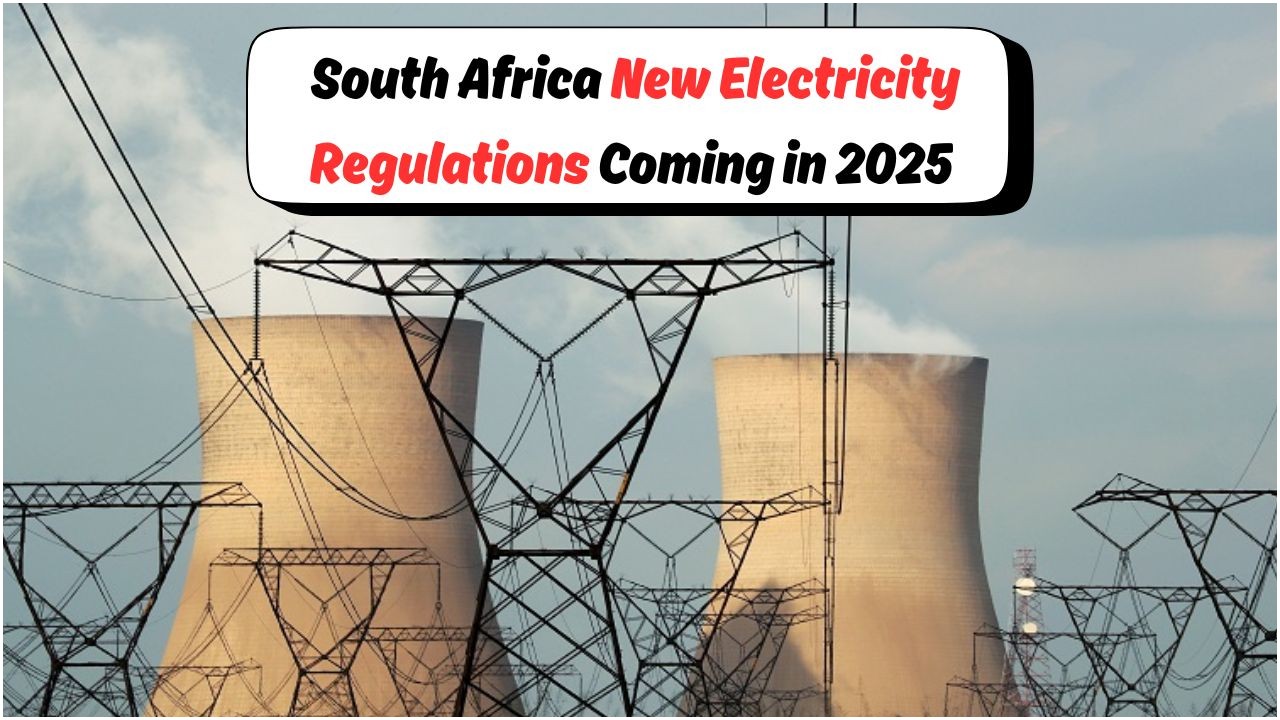South Africa’s Electricity Laws Overhauled: In a landmark move set to redefine the nation’s energy sector, South Africa has introduced significant amendments to its electricity laws. These changes aim to address long-standing challenges in the power supply, improve efficiency, and foster a more sustainable energy future. With the country grappling with frequent power shortages and load shedding, the overhaul of electricity regulations is a crucial step towards stability and growth. The new legislation not only seeks to streamline operations across the sector but also encourages innovation and investment from both local and international stakeholders. This development marks a pivotal shift in how electricity is generated, distributed, and consumed in South Africa, promising a brighter and more sustainable future for its citizens.
Key Changes in South Africa’s Electricity Legislation
The overhaul of South Africa’s electricity laws brings several key changes that are set to revolutionize the power sector. One of the most significant updates is the increased allowance for private sector participation in electricity generation. This change aims to reduce the monopoly of Eskom, the state-owned power utility, by opening up the market to independent power producers (IPPs). With this shift, the government hopes to introduce more competition, which in turn should lead to improved service delivery and reduced electricity costs for consumers.
Another crucial change involves the regulatory framework governing renewable energy projects. The new laws simplify the process for obtaining licenses and reduce the bureaucratic hurdles that previously hampered the development of solar, wind, and other renewable energy sources. This streamlined approach is expected to accelerate the transition to cleaner energy, aligning with global environmental goals and reducing the country’s carbon footprint.
Moreover, the legislation introduces stricter compliance standards for electricity providers, ensuring that all players in the market adhere to the highest levels of service and safety. This comprehensive approach to reforming the electricity sector aims to create a more resilient and reliable power system for all South Africans.
Impact on South Africa’s Economy and Environment
The impact of the newly overhauled electricity laws on South Africa’s economy and environment is anticipated to be profound. By encouraging investment in the energy sector, the government hopes to stimulate economic growth and create numerous job opportunities. The introduction of more players into the market is likely to drive innovation and efficiency, factors critical for economic development.
On the environmental front, the push towards renewable energy is expected to have a positive effect on South Africa’s ecological footprint. By transitioning away from coal and other fossil fuels, the country can significantly reduce its greenhouse gas emissions, contributing to the global fight against climate change. This shift also positions South Africa as a leader in sustainable energy within the African continent, potentially attracting international investments focused on green technology.
Furthermore, the move towards a more diverse energy mix reduces the risk of power shortages, thus ensuring a stable supply of electricity for households and industries. This stability is crucial for economic productivity and the overall wellbeing of citizens, reinforcing the importance of these legislative changes.
 Ensure Timely R2,315 Disability Grant Payments: Verify Your Account Before September 4, 2025
Ensure Timely R2,315 Disability Grant Payments: Verify Your Account Before September 4, 2025
Challenges in Implementing New Electricity Regulations
Despite the promising outlook, implementing the new electricity regulations in South Africa is not without its challenges. One of the primary hurdles is the transition process for existing utilities and infrastructure, which requires significant investment and coordination. The shift from a centralized system dominated by Eskom to a more competitive market model necessitates careful management to avoid disruptions in electricity supply.
Additionally, there is a need for robust regulatory oversight to ensure that new market entrants comply with the established standards and contribute positively to the sector’s growth. This oversight is essential to maintain public trust and ensure that the benefits of the new laws are realized across all segments of society.
Moreover, the integration of renewable energy sources into the existing grid presents technical challenges, requiring upgrades and modernization of infrastructure. This task demands substantial financial resources and expertise, which may pose difficulties in the short term. However, with strategic planning and international collaboration, these challenges can be addressed effectively, paving the way for a successful transition.
The Future of South Africa’s Energy Sector
The future of South Africa’s energy sector looks promising as the country embraces these transformative changes. The shift towards a more open and competitive electricity market is expected to lead to greater energy security and sustainability. With the potential for increased foreign investment and technological innovation, South Africa is poised to become a regional leader in renewable energy and sustainable development.
As the country continues to implement these changes, there is also an opportunity to address longstanding social and economic inequalities. By providing reliable and affordable electricity, the government can improve the quality of life for millions of South Africans, particularly those in rural and underserved communities.
Looking ahead, the success of these initiatives will depend on the continued commitment of stakeholders across the public and private sectors. By working together, South Africa can achieve its energy goals and set a precedent for other nations seeking to overhaul their electricity sectors. In doing so, the country not only secures its own future but also contributes to the global effort to create a more sustainable and equitable world.






